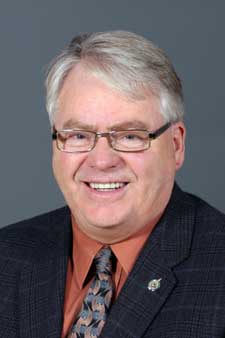 OTTAWA – Last month was a busy one in politics.
OTTAWA – Last month was a busy one in politics.
Much was happening at the federal and provincial level, but the real action was in municipal politics, in the cities and towns of several provinces.
Calgary surprised the country by electing Naheed Nenshi, an academic and a Muslim. Toronto elected conservative candidate Rob Ford – opting for no new taxes, and a law and order agenda. Voters in many other cities did the same: they voted for new candidates who were often very different from the ones they replaced.
The only common theme seems to be one of dissatisfaction with the establishment. Voters embraced change – just change. Some went right, to conservative candidates, the ones selling lower taxes, more police and placing less of a focus on issues like poverty. In some other cases voters went left, to candidates bringing vision and optimism.
There was no common outcome. There was no broad trend towards one political philosophy or the other – but there was a wave of change from whatever is happening now. We saw some of the same in the U.S. mid-term elections this fall. Why did this happen?
People are unhappy. We have reason to be. Canadians have been battered by a recession we did not cause. Greedy bankers and investment managers gambled and blew it in the United States, pushing the world into a global downturn. Before that, most Canadians were employed and working hard and taking care of each other. Then the economic roof fell in.
The recovery has been slow. Things will probably continue to improve slowly, but initial improvements have lost momentum. Too many of us had too little to be grateful for this past Thanksgiving. As we think about the coming holiday season, most of us are seeing fewer presents, smaller turkeys and thinner smiles. We’re worried. We mostly think things will get better, but we aren’t sure how long it will be before they do. There’s worry about pensions being there when we retire, and whether our jobs are secure if there’s a “double-dip” recession. Many aren’t sure how much more of this uncertainty we can take.
So we take our frustration out where we can. Feeling powerless, we use what power we have to say “Hey! I am not happy!” At the ballot box, we all have power. Frustrated Canadians told their municipal politicians that things were not OK.
Stephen Harper’s Conservatives, in power for almost five years now, were not in the public eye. There might not be a federal election this fall, and some people are saying “too bad”.
If there had been an election, voters could have told Mr. Harper directly how they felt about his policies. How $16 billion on fighter jets and $6 billion on corporate handouts isn’t affordable when everyone else is being asked to tighten their belts …and shoulder more taxes, like the HST. How spending a billion dollars to entertain the G-8 and G-20 members made no sense when working Canadians needed help. How we are embarrassed that Harper hasn’t even tried to work on a credible climate change plan. How Canadians were embarrassed again that Harper’s policies meant the UN doesn’t trust us with a leadership role any more. And how shameful it is that Harper lets big companies file for bankruptcy and skip out on their debts – severance pay, among others – to the workers who helped them to make profits for years and decades.
So while municipal politicians took a beating last month, voters have not yet had the opportunity to tell Stephen Harper how they feel about him. Because many of the things that are irritating Canadians came from his government.
That election will come. And if Canadians maintain their current mood, Harper and his minions may well be in for a surprise.
Bruce Hyer, MP
